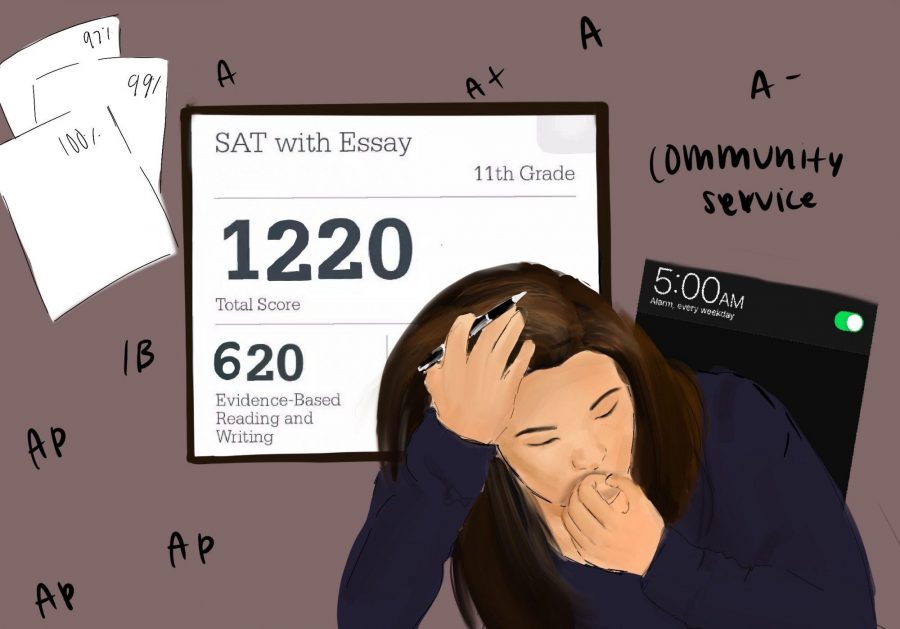The SAT and ACT – three- to four-hour tests that hover over students’ heads, heavily stressing them out for much of their high school experience.
While in high school, students develop intellectual knowledge and academic skills to help prepare them for their future careers. In fact, many take Advanced Placement and International Bacchelature courses to further challenge themselves academically. High school also provides a myriad of activities and programs for students to participate in based on their interests, such as ASB, sports and clubs.
Growing up with strict Asian parents, I have had the unfortunate experience of having my mom send me to tutors since third grade. In particular, I have been driven to CL Academy to take mock exams about a hundred times so that I could improve my ACT score.
I would say that I am definitely a hardworking student who has spent over 20 sleepless nights to study for my tests and quizzes. I would not consider myself a slacker but rather a scholar who cares a lot about academics and grades. In fact, I would put my academics over my extracurricular activities, such as dance.
However, taking the SAT and ACT often leaves me to feel discouraged because my scores don’t leave me satisfied.
Many students, including myself, disregard all of their other achievements and their involvement in extracurricular activities and instead wrap their chances of acceptance at their dream colleges around one thing: their SAT/ACT scores.
It is common for students to believe that these national assessments are the main indicators of their ability to succeed in college, while in reality, it does not necessarily accurately prove their capabilities or work ethic. Our GPA is what helps paint a more accurate picture of how hard and well we work as well as how we are able to manage all our classes.
While the SAT/ACT may measure only a few high schoolers’ readiness for college, giving admission officers a number of how many students to compare one another to, the exams don’t accurately measure one’s intelligence. Students with wealthier backgrounds often tend to do better over those who don’t because they are given access to more advantageous resources, such as more academic tutoring and The Critical Reader’s “The Ultimate Guide to SAT.” According to the Washington Post, students who have a family income of over $200,000 have an average combined SAT score of 1714 – the highest being a score of 2400 (2014 SAT scale), while those with an income of $0-$20,000 have a combined score of 1326 (2014 SAT scale).
According to the ACT Research & Policy, the ACT also holds the same level of statistics. Families with an income of $80,000 in 2016 have an average score of 19.5 – the highest being a score of 36, while those with an income of $80,000 or higher have a combined average score of 23.6.
My long hours of diligence preparing for these tests have not given me a satisfying 36 ACT score, but does that mean I’m not a hard-worker? Instead of these pressuring, mind-boggling standardized exams, why can’t colleges admit us just based on how well-rounded of a student we are? One test should not determine what the future of a student’s career might look like.
How I came up with this thinking is based on this past summer college tour that my family and I took. While sitting through the information sessions, I learned that my test scores is a contributing factor to my chances of getting into the school. But after I spoke one-on-one with some of the admissions offers, I started to feel more comfortable.
I spoke to them with one question hovering my head the whole time: Is my ACT score going to determine my acceptance to this school? After about a 20-minute long conversation, I felt more reassured because I learned that admissions officers are trying to stray away from focusing on our test scores and paying more attention to our essays.
So as I am getting ready to submit my college apps, my final thoughts are what I’m sure many of us seniors dwell upon: Dear Pomona, I’m more than my SAT/ACT score.














